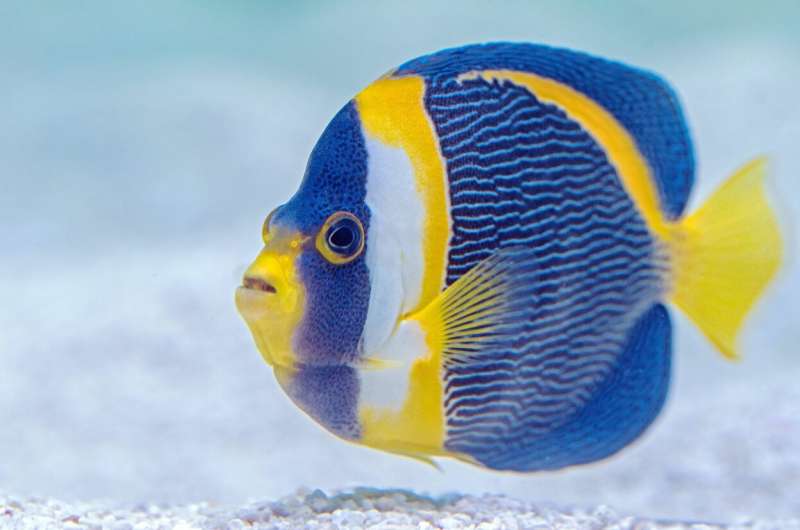How climate change-induced stress is altering fish hormones—with huge repercussions for reproduction

In . Since then, over 1,100 studies on different animal species, including 400 on freshwater fish, have found similar results.
This raises several questions.
Why does this happen? How can this be explained, and does it harm long-term fish populations? Our research has shown that a key factor in explaining this is the over-production of stress hormones as a result of higher temperatures.
No time to adapt
Fish reproductive organs are highly adaptable to environmental changes as, unlike mammals, . Remarkably, even slight changes in water conditions can directly and significantly .
Fish use this to their advantage by using environmental cues to . For example, several fish species, like the .
However, sudden environmental changes brought about by climate change are drastically affecting fish populations and .
Temperature can change female to male fish
Studying how female fish become male (or are masculinized) through temperature change has led to a significant breakthrough. When fish are exposed to temperatures outside their normal range, they become stressed and experience a high level of the . This is the case for several fish species, such as the , and .
Interestingly, the same enzyme that generates cortisol is also in charge of producing the most potent male hormone in fish called . The role of this male hormone is to trigger the development of male sexual characteristics in fish.
If fish experience stress—i.e., an increase in cortisol—from high temperatures, it can tilt the hormonal balance in fish larva and result in testes development. The overproduction of androgens results in more males developing than females under high temperatures.
Not just stress
In , our research group demonstrated that blocking stress receptors through completely suppressed fish masculinization induced by high temperatures. These results reveal, for the first time, that the brain acts as a driver of masculinization induced by thermal stress.
In our new study published in in 2023, we further demonstrated that thyroid hormones, in addition to stress hormones, are involved in fish masculinization. Once again, through gene editing, we were able to block stress receptors and show that the thyroid hormone pathway is affected when fish experience stress.
It was observed that when cortisol and thyroid hormone production were suppressed through the combined use of chemical drugs, no females were masculinized. Understanding the molecular mechanisms behind fish sex determination helps predict how climate change-induced temperature can affect fish populations in the future.
Role of pollution
Several environmental contaminants, like pesticides and plasticizers, are known to . These contaminants—known as endocrine-disrupting chemicals—.
With climate change, environmental factors that affect sexual development are now a major issue. Lately, temperatures have been fluctuating drastically, both low and high, exceeding the acceptable range for most fish species. Such changes cause high temperature events, acidification, and hypoxia by skewing it towards males, and even resulting in all-male fish populations.
In rivers and lakes, the inter-annual events of El Niño or La Niña can also be altered by climate change, which can cause severe periods of flood or drought. This can exacerbate stresses to fish and too few females in a fish population can cause it to collapse, with dire consequences in biodiversity for us all.
Journal information: Cellular and Molecular Life Sciences
Provided by The Conversation
This article is republished from under a Creative Commons license. Read the .![]()



















